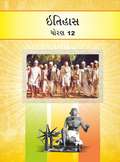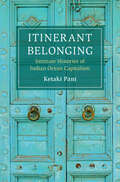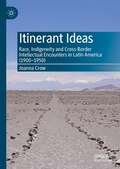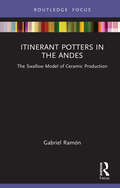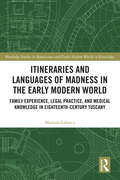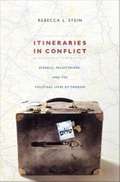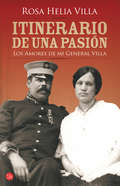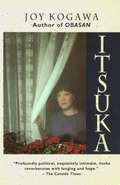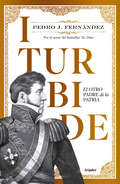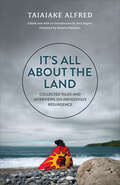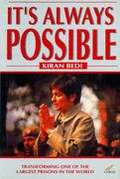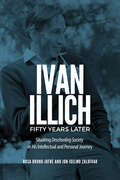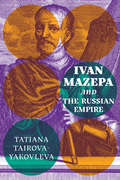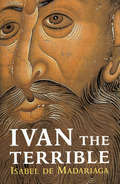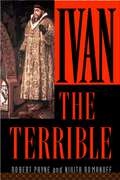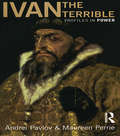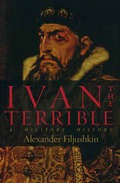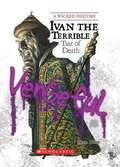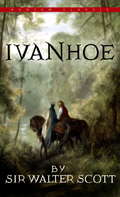- Table View
- List View
Itihas Aur Nagrik Shastra class 7 - Maharashtra Board: इतिहास और नागरिक शास्त्र ७वीं कक्षा - महाराष्ट्र बोर्ड
by Maharashtra Rajya Pathyapustak Nirmiti Va Abhysakram Sanshodhan Mandal Puneइतिहास और नागरिकशास्त्र (सातवीं कक्षा) यह पुस्तक इतिहास और नागरिकशास्त्र के माध्यम से विद्यार्थियों को भारत के मध्यकालीन इतिहास तथा संवैधानिक मूल्यों से परिचित कराती है। इतिहास के भाग में शिवाजी महाराज के पूर्वकाल से लेकर मराठा साम्राज्य के उत्थान तक की घटनाओं को विस्तार से प्रस्तुत किया गया है। इसमें धार्मिक सौहार्द, भक्ति आंदोलन, सिख धर्म, सूफी परंपरा तथा विभिन्न शासकों की नीतियों का वर्णन किया गया है। नागरिकशास्त्र में भारतीय संविधान की संरचना, मौलिक अधिकार, नीति निदेशक सिद्धांत और कर्तव्यों की चर्चा की गई है। यह पुस्तक विद्यार्थियों को अपने सामाजिक और राष्ट्रीय उत्तरदायित्वों को समझने और जागरूक नागरिक बनने के लिए प्रेरित करती है।
Itihas Aur Nagrik Shastra class 8 - Maharashtra Board: इतिहास और नागरिक शास्त्र ८वीं कक्षा - महाराष्ट्र बोर्ड
by Maharashtra Rajya Pathyapustak Nirmiti Va Abhysakram Sanshodhan Mandal Puneयह पुस्तक आठवीं कक्षा के विद्यार्थियों के लिए आधुनिक भारत के इतिहास और नागरिकशास्त्र की मूलभूत जानकारी प्रदान करती है। इतिहास भाग में ब्रिटिश शासन के प्रभाव, स्वतंत्रता संग्राम, सामाजिक सुधार आंदोलनों और आधुनिक भारत के निर्माण को विस्तार से समझाया गया है। इसमें 1857 का स्वतंत्रता संग्राम, राष्ट्रवादी आंदोलनों, महात्मा गांधी और अन्य स्वतंत्रता सेनानियों के योगदान, तथा भारत की स्वतंत्रता प्राप्ति की घटनाओं पर प्रकाश डाला गया है। नागरिकशास्त्र भाग में भारत की संसदीय शासन प्रणाली, संविधान, कानून, न्यायपालिका, केंद्र और राज्य सरकार की संरचना, लोकतंत्र, मौलिक अधिकार और कर्तव्य जैसे विषयों को शामिल किया गया है। यह पुस्तक संविधान के अनुच्छेद 51(A) में उल्लिखित नागरिकों के मूल कर्तव्यों को भी समझाती है, जिसमें पर्यावरण संरक्षण, वैज्ञानिक दृष्टिकोण अपनाने और राष्ट्रीय एकता बनाए रखने की जिम्मेदारी शामिल है। चित्र, मानचित्र और गतिविधियों के माध्यम से यह पुस्तक छात्रों को इतिहास और नागरिकशास्त्र की व्यावहारिक समझ विकसित करने में मदद करती है, जिससे वे एक जागरूक और जिम्मेदार नागरिक बन सकें।
Itihas Aur Rajneeti Shastra class 9 - Maharashtra Board: इतिहास और राजनीति शास्त्र ९वीं कक्षा - महाराष्ट्र बोर्ड
by Maharashtra Rajya Pathyapustak Nirmiti Va Abhysakram Sanshodhan Mandal Puneयह पुस्तक इतिहास और राजनीति शास्त्र (कक्षा 9, हिंदी माध्यम) पर आधारित है। इसका उद्देश्य विद्यार्थियों को स्वतंत्रता के बाद के भारत की सामाजिक, राजनीतिक, आर्थिक और तकनीकी प्रगति को समझाना है। इसमें 1961 से 2000 तक की प्रमुख ऐतिहासिक घटनाओं, संविधान, आर्थिक विकास, महिलाओं और कमजोर वर्गों के सशक्तीकरण, विज्ञान और प्रौद्योगिकी, अंतरराष्ट्रीय संबंधों, और भारत के समक्ष आंतरिक चुनौतियों को शामिल किया गया है। इसमें पंचवर्षीय योजनाओं, बैंकों के राष्ट्रीयकरण, हरित क्रांति, परमाणु परीक्षण, कारगिल युद्ध, वैश्वीकरण और तकनीकी प्रगति का भी उल्लेख है। साथ ही, इसमें भारतीय लोकतंत्र, विदेश नीति, सुरक्षा व्यवस्था, और मानवाधिकारों पर विशेष जोर दिया गया है। पुस्तक विद्यार्थियों को इतिहास और राजनीति शास्त्र की मूलभूत समझ प्रदान करने और उन्हें भविष्य की प्रतियोगी परीक्षाओं के लिए तैयार करने में सहायक है।
Itihas Aur Rajneeti Vigyan class 10 - Maharashtra Board: इतिहास और राजनीति विज्ञान १०वीं कक्षा - महाराष्ट्र बोर्ड
by Maharashtra Rajya Pathyapustak Nirmiti Va Abhysakram Sanshodhan Mandal Pune"इतिहास और राजनीति विज्ञान" (कक्षा 10 - हिंदी माध्यम) इस पुस्तक का मुख्य उद्देश्य कक्षा 10 के छात्रों को भारतीय इतिहास और राजनीति विज्ञान के मूलभूत पहलुओं से अवगत कराना है। यह पुस्तक इतिहास लेखन की परंपरा, संविधान के मूल सिद्धांत, और लोकतंत्र के विभिन्न पहलुओं पर केंद्रित है। इतिहास भाग में पश्चिमी और भारतीय परंपरा, उपयुक्त इतिहास, कलाओं का इतिहास, और सामाजिक-राजनीतिक आंदोलनों की चर्चा की गई है। राजनीति विज्ञान में चुनाव प्रक्रिया, राजनीतिक दलों की भूमिकाएँ, और लोकतंत्र की चुनौतियाँ शामिल हैं। साथ ही, इसमें सांस्कृतिक और प्राकृतिक धरोहर के संरक्षण की महत्ता और उनकी भूमिका पर प्रकाश डाला गया है। छात्रों को पाठ्यपुस्तक में संकलित जानकारी को व्यावहारिक जीवन से जोड़ने हेतु प्रोत्साहित किया गया है।
Itinerant Belonging: Intimate Histories of Indian Ocean Capitalism (Cambridge Oceanic Histories)
by Ketaki PantAlong the coast of Gujarat, nineteenth-century merchant houses or havelis still stand in historic cities, connecting ports from Durban to Rangoon. In this ambitious and multifaceted work, Ketaki Pant uses these old spaces as a lens through which to view not only the vibrant stories of their occupants, but also the complex entanglements of Indian Ocean capitalism. These homes reveal new perspectives from colonized communities who were also major merchants, signifying ideas of family, race, gender, and religion, as well as representing ties to land. Employing concepts from feminist studies, colonial studies, and history, Pant argues that havelis provide a model for understanding colonial capitalism in the Indian Ocean as a spatial project. This is a rich exploration of both belonging and unbelonging and the ways they continue to shape individual and social identities today.
Itinerant Ideas: Race, Indigeneity and Cross-Border Intellectual Encounters in Latin America (1900-1950)
by Joanna CrowThis book explores how ideas about race travelled across national borders in early twentieth-century Latin America. It builds on a vast array of scholarly works which underscore the highly contingent and flexible nature of race and racism in the region. The framework of the nation-state dominates much of this scholarship, in part because of the important implications of ideas about race for state policies. This book argues that we need to investigate the cross-border elaboration of ideas that informed and fed into these policies. It is organized around three key policy areas – labour, cultural heritage, and education – and focuses on conversations between Chilean and Peruvian intellectuals about the ‘indigenous question’. Most historical scholarship on Chile and Peru draws attention to the wars fought in the nineteenth century and their long-term consequences, which reverberate to this day. Relations between the two countries are therefore interpreted almost exclusively as antagonistic and hostile. Itinerant Ideas challenges this dominant historical narrative.
Itinerant Potters in the Andes: The Swallow Model of Ceramic Production
by Gabriel RamónItinerant Potters in the Andes: The Swallow Model of Ceramic Production presents a new interpretative approach to pottery production and distribution. Based on extensive fieldwork data from the northern Peruvian Andes, it explores the swallow potters, itinerant artisans who seasonally leave their hometowns to produce ceramic pots in destination towns, both near and far.These itinerant artisans have been recorded ethnographically in the Peruvian territory since the late nineteenth century. However, archaeologists and art historians tend to ignore them in their explanations of Andean material culture, insisting on a static image of the past. Moreover, nearly all of the general interpretative concepts and models of the precolonial Andean world are based on decorated ceramics and on a model of a potter who stays put and works in their hometown. This book argues that comprehensive explanations of Andean history must incorporate undecorated pottery and must consider various types of potters. This novel perspective uses the swallows to propose a more dynamic reading of Andean ceramic evidence, in which these potters are understood as part of broader inter-communal Andean migration patterns that have persisted since precolonial times.This book will be of great interest to researchers in Andean Archaeology and Ethnography as well as pottery specialists from around the world.
Itineraries and Languages of Madness in the Early Modern World: Family Experience, Legal Practice and Medical Knowledge in Eighteenth-Century Tuscany (Routledge Studies in Renaissance and Early Modern Worlds of Knowledge)
by Mariana LabarcaDrawing on a wide range of sources including interdiction procedures, records of criminal justice, documentation from mental hospitals, and medical literature, this book provides a comprehensive study of the spaces in which madness was recorded in Tuscany during the eighteenth century. It proposes the notion of itineraries of madness, which, intended as an heuristic device, enables us to examine records of madness across the different spaces where it was disclosed, casting light on the connections between how madness was understood and experienced, the language employed to describe it, and public and private responses devised to cope with it. Placing the emotional experience of the Tuscan families at the core of its analysis, this book stresses the central role of families in the shaping of new understandings of madness and how lay notions interacted with legal and medical knowledge. It argues that perceptions of madness in the eighteenth century were closely connected to new cultural concerns regarding family relationships and family roles, which resulted in a shift in the meanings of and attitudes to mental disturbances.
Itineraries in Conflict: Israelis, Palestinians, and the Political Lives of Tourism
by Rebecca L. SteinIn Itineraries in Conflict, Rebecca L. Stein argues that through tourist practices--acts of cultural consumption, routes and imaginary voyages to neighboring Arab countries, culinary desires--Israeli citizens are negotiating Israel's changing place in the contemporary Middle East. Drawing on ethnographic and archival research conducted throughout the last decade, Stein analyzes the divergent meanings that Jewish and Palestinian citizens of Israel have attached to tourist cultures, and she considers their resonance with histories of travel in Israel, its Occupied Territories, and pre-1948 Palestine. Stein argues that tourism's cultural performances, spaces, souvenirs, and maps have provided Israelis in varying social locations with a set of malleable tools to contend with the political changes of the last decade: the rise and fall of a Middle East Peace Process (the Oslo Process), globalization and neoliberal reform, and a second Palestinian uprising in 2000. Combining vivid ethnographic detail, postcolonial theory, and readings of Israeli and Palestinian popular texts, Stein considers a broad range of Israeli leisure cultures of the Oslo period with a focus on the Jewish desires for Arab things, landscapes, and people that regional diplomacy catalyzed. Moving beyond conventional accounts, she situates tourism within a broader field of "discrepant mobility," foregrounding the relationship between histories of mobility and immobility, leisure and exile, consumption and militarism. She contends that the study of Israeli tourism must open into broader interrogations of the Israeli occupation, the history of Palestinian dispossession, and Israel's future in the Arab Middle East. Itineraries in Conflict is both a cultural history of the Oslo process and a call to fellow scholars to rethink the contours of the Arab-Israeli conflict by considering the politics of popular culture in everyday Israeli and Palestinian lives.
Itinerario de una pasión
by Rosa Helia VillaEl nombre de Francisco Villa levanta aún tempestades de pasión. Esta novela nos devuelve al Villa más humano, que triunfó en las batallas y los amores. En Itinerario de una pasión, Rosa Helia Villa, nieta del gran revolucionario, narra las batallas temerarias, los asedios, las guerrillas y los combates cuerpo a cuerpo que Villa sostuvo con sus 18 mujeres. El nombre de Francisco Villa levanta aún tempestades de pasión. Sus hechos de armas han sido bien documentados, pero ¿qué hay de su vida sentimental, de sus anécdotas amorosas y su constante apego a las mujeres, que son aspectos tan importantes como su lucha social? Si sus hazañas militares fueron siempre las de un héroe, no quedaron atrás sus momentos amorosos. Esta novela nos devuelve al Villa más humano, que supo conquistar a las mujeres con su corazón, con su arrojo temerario de general victorioso, que triunfó en las batallas y los amores.
Itsuka
by Joy KogawaAlready a Canadian bestseller, "Itsuka," the sequel to Joy Kogawa's award-winning novel "Obasan," follows the character Naomi Nakane into adulthood, where she becomes involved in the movement for governmental redress. Much more overtly political than Kogawa's first novel, the story focuses on reaching that Itsuka - someday - when the mistreatment of those of Japanese heritage during World War II would be recognized. Although during the war both the United States and Canada interned Japanese-Americans and confiscated their property, when the war ended the property of those in Canada was never returned to them. Itsuka is the story of the fight to get government compensation for the thousands of victims of the wartime internment, which was, unbelievably, only just accomplished in 1988. Both a moving novel of self-discovery and a fascinating historical account of the fight for redress, Itsuka's final message is one of inspiration and hope.
Iturbide: El otro padre de la patria
by Pedro J. FernándezÉsta es la historia que no te han contado del hombre que liberó a México, se convirtió en su primer emperador y fue aplaudido como Dragón de Hierro. El héroe que olvidó la historia oficial. Agustín de Iturbide es recordado como uno de los grandes villanos de nuestra historia, pero ¿te has preguntado si en verdad fue así? Profundizar en su legado es un viaje por uno de los momentos más convulsos del siglo XIX, de la muerte de la Nueva España y del nacimiento del México moderno. Las luchas militares y personales de Agustín te adentrarán a batallas poco conocidas de la guerra de la Independencia, a su relación personal con la famosísima Güera Rodríguez, y al que se conoce como el día más feliz que ha tenido México, así como su primer gobierno. Descubrirás, de forma íntima, a uno de los caudillos que definió su época y al que se ha convertido, para muchos, en el otro padre de la patria. Iturbide es una nueva forma de vivir la Independencia de México, que cambiará tu perspectiva sobre los hombres y mujeres que forjaron nuestra patria.
Ituri: "Covered In Blood"
by Human Rights WatchIturi is often described as the bloodiest corner of the Democratic Republic of Congo (DRC). Despite three peace agreements purportedly ending the five year-old Congolese war, fighting in northeastern DRC intensified in late 2002 and early 2003. In early May 2003, hundreds of civilians were slaughtered in the town of Bunia and tens of thousands of others were forced to flee. Some sought shelter near the United Nations compound desperately looking for protection from the violence. While the international community focused on the town of Bunia, massacres continued in other parts of Ituri away from media attention. As one witness described it, "Ituri was covered in blood." Based on information gathered by its researchers and on other reports, Human Rights Watch estimates that at least 5,000 civilians died from direct violence in Ituri between July 2002 and March 2003. These victims are in addition to the 50,000 civilians that the United Nations estimates died there since 1999. These losses are just part of an estimated total of 3.3 million civilians dead throughout the Congo, a toll that makes this war more deadly to civilians than any other since World War II.
It’s All about the Land: Collected Talks and Interviews on Indigenous Resurgence
by Taiaiake AlfredIlluminating the First Nations struggles against the Canadian state, It’s All about the Land exposes how racism underpins and shapes Indigenous-settler relationships. Renowned Kahnawà:ke Mohawk activist and scholar Taiaiake Alfred explains how the Canadian government’s reconciliation agenda is a new form of colonization that is guaranteed to fail. Bringing together Alfred’s speeches and interviews from over the past two decades, the book shows that Indigenous peoples across the world face a stark choice: reconnect with their authentic cultures and values or continue following a slow road to annihilation. Rooted in ancestral spirit, knowledge, and law, It’s All about the Land presents a passionate argument for Indigenous Resurgence as the pathway toward justice for Indigenous peoples.
It’s Always Possible: Transforming One of the Largest Prisons in the World
by Kiran BediLocated in India's capital, New Delhi, is Tihar, one of the largest prisons in the world. Within the prison complex of over 200 acres are housed over 9,700 inmates - men, women, adolescents, children; both Indians and foreigners.
Ivan Illich Fifty Years Later: Situating Deschooling Society in His Intellectual and Personal Journey
by Jon Igelmo Zaldivar Rosa Bruno-JofréIn 1971, priest, theologian, and philosopher Ivan Illich wrote Deschooling Society, a plea to liberate education from schooling and to separate schooling from the state. On the occasion of the fiftieth anniversary of its publication, Ivan Illich Fifty Years Later looks at the theological roots of Illich’s thought and the intellectual and ideological strands that contributed to his ideas. Guided by the central question of how Illich reached the point of writing Deschooling Society, the book sheds light on how Illich produced a critique of schooling that can be defined by its eclecticism. Bruno-Jofré and Igelmo Zaldívar explore how this controversial book was framed by Illich’s early neo-scholastic and anti-modern foundation, his discovery of St. Thomas through Jacques Maritain, and the existential turning points that influenced his public life and intellectual direction in moving from a critique of the Church as institution to a critique of schooling. Drawing from the interpretative theories of Quentin Skinner, Reinhart Koselleck, and William H. Sewell and from concepts such as educationalization, transnationality, and configuration, among other heuristic tools, the authors provide an original and cross-disciplinary analysis of Deschooling Society and its place in Illich’s journey.
Ivan Mazepa and the Russian Empire
by Tatiana Tairova-YakovlevaIvan Mazepa (1639-1709), hetman of the Zaporozhian Host in what is now Ukraine, is a controversial figure, famous for abandoning his allegiance to Tsar Peter I and joining Charles XII's Swedish army during the Battle of Poltava. Although he is discussed in almost every survey and major book on Russian and Ukrainian history, Ivan Mazepa and the Russian Empire is the first English-language biography of the hetman in sixty years. A translation and revision of Tatiana Tairova-Yakovleva's 2007 Russian-language book, Ivan Mazepa and the Russian Empire presents an updated perspective. This account is based on many new sources, including Mazepa's archive - thought lost for centuries before it was rediscovered by the author in 2004 - and post-Soviet Russian and Ukrainian historiography. Focusing on this fresh material, Tairova-Yakovleva delivers a more nuanced and balanced account of the polarizing figure who has been simultaneously demonized in Russia as a traitor and revered in Ukraine as the defender of independence. Chapters on economic reform, Mazepa's impact on the rise to power of Peter I, his cultural achievements, and the reasons he switched his allegiance from Peter to Charles integrate a larger array of issues and personalities than have previously been explored. Setting a standard for the next generation of historians, Ivan Mazepa and the Russian Empire reveals an original picture of the Hetmanate during a moment of critical importance for the Russian Empire and Ukraine.
Ivan the Terrible
by Isabel de Madariaga&“This significant biography of the 16th-century Russian czar…is likely to become the definitive work on Ivan for some time&” (Publishers Weekly, starred review). One of the most important figures in Russian history, Ivan IV Vasilyevich has remained among the most neglected. The country&’s first Tsar, he is notorious for pioneering a policy of unrestrained terror—and for killing his own son. In Ivan the Terrible, Russian historian Isabel de Madariaga presents the first comprehensive biography of Ivan from birth to death, shedding light on his policies, his marriages, his atrocities, and his disordered personality. Situating Ivan within the Russian political developments of the sixteenth century, de Madariaga also offers revealing comparisons with English, Spanish, and other European courts of the time. The biography includes a new account of the role of astrology and magic at Ivan&’s court and provides fresh insights into his foreign policy. Addressing the controversies that have paralyzed western scholarship as well as the challenges of authentication—since much of Ivan&’s archive was destroyed by fire in 1626—de Madariaga seeks to present Russia as viewed from within Russia rather than from abroad. The result is an enlightening work that captures the full tragedy of Ivan&’s reign.
Ivan the Terrible
by Robert Payne Nikita RomanoffCzar Ivan IV (1530-1584), the first Russian ruler to take the title czar, is known as one of the worst tyrants in history, but few people among the general public know how he got such an infamous reputation. Relying on extensive research based heavily on original Russian sources, this definitive biography depicts an incredibly complex man living in a time of simple, harsh realities. Robert Payne, the distinguished author of many historical and biographical works, and Russian scholar Nikita Romanoff, describe in vivid and lively detail Ivan's callous upbringing; the poisoning of his second wife and the murder of his son; his obsession with religion and sin; his predilection for mass murder, evidenced by his massacre of 30,000 citizens of Novgorod; yet his remarkable intelligence as a ruler, supporting the growth of trade and expanding Russia's borders.
Ivan the Terrible (Profiles In Power #16)
by Maureen Perrie Andrei PavlovThis is the first major re-assessment of Ivan the Terrible to be published in the West in the post-Soviet period. It breaks away from older stereotypes of the tsar – whether as ‘crazed tyrant’ and ‘evil genius’, on the one hand, or as a ‘great and wise statesman’, on the other – to provide a more balanced picture. It examines the ways in which Ivan’s policies contributed to the creation of Russia’s distinctive system of unlimited monarchical rule.Ivan is best remembered for his reign of terror, the book pays due attention to the horrors of his executions, tortures and repressions, especially in the period of the oprichnina (1565-72), when he mysteriously divided his realm into two parts, one of which was under the direct control of the tsar and his oprichniki (bodyguard). This work argues that the often gruesome forms assumed by the terror reflected not only Ivan’s personal cruelty and sadism, but also his religious views about the divinely ordained right of the tsar to punish his treasonous subjects, just as sinners were punished in Hell. Primarily chronological in its organisation, the book focuses on three main aspects of Ivan’s power: the territorial expansion of the state, the mythology, rituals and symbols of monarchy; and the development of the autocratic system of rule.
Ivan the Terrible: A Military History
by Alexander FiljushkinAn in-depth look at the military strategy of the first Russian ruler to invade Europe. Ivan&’s campaigns against the Livonian Confederation were initially very successful. In 1558, Russian soldiers occupied Dorpat and Narva, and laid siege to Reval, creating vital trade routes over the Baltic Sea. At the Battle of Ergema, the Russians defeated the knights of the Livonian Order, fueling Ivan&’s dreams of a Russian Empire. However, as Erik XIV of Sweden recaptured Reval, and the Poles joined forces with the Lithuanians, the war began to turn against Ivan. In 1571, an army of 120,000 Crimean Tatars crossed the River Ugra, crushed the Russian defenses, and burned Moscow to the ground. As Ivan became increasingly paranoid and violent, he carried out a number of terrible massacres. It is thought that more than forty thousand were killed when the Russians sacked the town of Novgorod in 1570, and many were tortured and murdered in front of Ivan and his son. This book describes the organization and equipment of the tsar&’s army and the forces of his enemies, the Poles, Lithuanians, Tatars, and Livonian Knights. The narrative examines all of Russia&’s military campaigns in Eastern Europe and Western Siberia during the period of 1533 to 1584—in the first specialist study of Ivan the Terrible&’s military strategy to be published in English.
Ivan the Terrible: Tsar of Death
by Sean PriceAs Russia's first tsar, this ruthless ruler forced thousands from their homes, tortured spies, executed enemies, and even killed his own son. Will anyone ever really know what made Ivan so terrible?
Ivanhoe
by Sir Walter ScottThus communed these; while to their lowly dome, The full-fed swine return'd with evening home; Compell'd, reluctant, to the several sties, With din obstreperous, and ungrateful cries. Pope's Odyssey.

